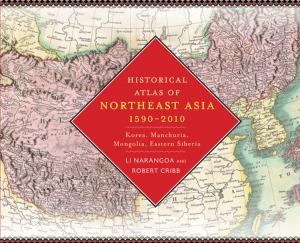Socialist Cosmopolitanism
The Chinese Literary Universe, 1945-1965
Fiction & Literature, Literary Theory & Criticism, Asian, Far Eastern, Theory| Author: | Nicolai Volland | ISBN: | 9780231544757 |
| Publisher: | Columbia University Press | Publication: | March 28, 2017 |
| Imprint: | Columbia University Press | Language: | English |
| Author: | Nicolai Volland |
| ISBN: | 9780231544757 |
| Publisher: | Columbia University Press |
| Publication: | March 28, 2017 |
| Imprint: | Columbia University Press |
| Language: | English |
Socialist Cosmopolitanism offers an innovative interpretation of literary works from the Mao era that reads Chinese socialist literature as world literature. As Nicolai Volland demonstrates, after 1949 China engaged with the world beyond its borders in a variety of ways and on many levels—politically, economically, and culturally. Far from rejecting the worldliness of earlier eras, the young People's Republic developed its own cosmopolitanism. Rather than a radical break with the past, Chinese socialist literature should be seen as an integral and important chapter in China's long search to find a place within world literature. Socialist Cosmopolitanism revisits a range of genres, from poetry and land reform novels to science fiction and children's literature, and shows how Chinese writers and readers alike saw their own literary production as part of a much larger literary universe. This literary space, reaching from Beijing to Berlin, from Prague to Pyongyang, from Warsaw to Moscow to Hanoi, allowed authors and texts to travel, reinventing the meaning of world literature. Chinese socialist literature was not driven solely by politics but by an ambitious—but ultimately doomed—attempt to redraw the literary world map.
Socialist Cosmopolitanism offers an innovative interpretation of literary works from the Mao era that reads Chinese socialist literature as world literature. As Nicolai Volland demonstrates, after 1949 China engaged with the world beyond its borders in a variety of ways and on many levels—politically, economically, and culturally. Far from rejecting the worldliness of earlier eras, the young People's Republic developed its own cosmopolitanism. Rather than a radical break with the past, Chinese socialist literature should be seen as an integral and important chapter in China's long search to find a place within world literature. Socialist Cosmopolitanism revisits a range of genres, from poetry and land reform novels to science fiction and children's literature, and shows how Chinese writers and readers alike saw their own literary production as part of a much larger literary universe. This literary space, reaching from Beijing to Berlin, from Prague to Pyongyang, from Warsaw to Moscow to Hanoi, allowed authors and texts to travel, reinventing the meaning of world literature. Chinese socialist literature was not driven solely by politics but by an ambitious—but ultimately doomed—attempt to redraw the literary world map.















